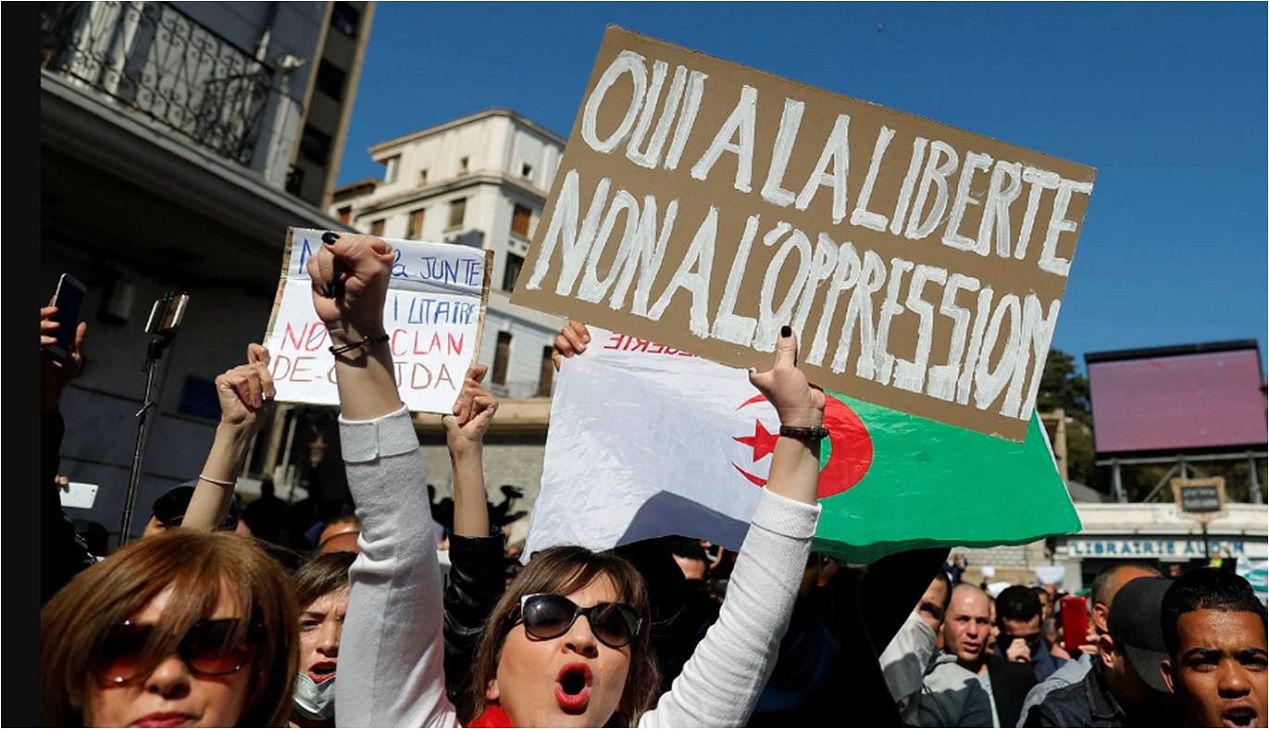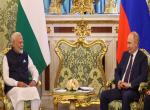It seems that time for long imposed dictatorships is on the decline. This is more so in the Middle East and North Africa (MENA) region where consequent to public protests and virulent demonstrations the well-entrenched strongmen had to submit and exit. President Omar of Sudan was one such casualty who over three decades had weathered many storms including the wrath of the western nations. However, prolonged public discontent forced him to leave.
Another North African nation Algeria is no exception where the ailing 82 years old President Abdelaziz Bouteflika has been holding on to power since 1999, and in recent times with the help of a maligned coterie who had their own axe to grind. The unremitting public outbursts, protests and demonstrations became far more pronounced when Bouteflika announced his candidature for continuing as the Head of State for the fifth time. The nominal elections were supposed to be held on April 18 but that was not acceptable to the people who this time round probably wanted to catch on the essence of the Arab Spring 2.0 which they had missed in the first round. Continuing pressure and ever increasing peaceful protests by thousands of Algerians, especially on Fridays, forced the feeble wheelchair bound President to resign on April 2 after guiding the chequered destiny of the North African nation for two decades. The exit was further expedited as the Chief of Army Staff Ahmed Gaid Salah saw an opportunity in supporting the contention of the protesters that Bouteflika was physically incapacitated to perform his official duties.
In Algiers, both the houses of the Parliament (National Council and National People’s Assembly) were convened who declared the post of the President to be vacant and appointed Abdelkader Bensalah, the President of the Senate, as the interim President in accordance with Article 102 of the Constitution which also calls for holding of elections in a maximum of 90 days. Accordingly, the elections have been called for July 4. Appointment of former loyalist interior minister Noureddine Bedoui as Prime Minister added fuel to fire as he was seen being complicit in the rigging of 2017 elections as well as being anti-people. Likewise, in the interim governance, another loyalist was the Chairman of Constitutional Council Tayeb Belaiz (resigned on April 16). Hence the interim succession by virtually the ‘pro-president system’ was seen by the public as a sham and it did not assuage the expectations of the masses since the “3 Bs” remained in saddle and represented corrupt and compromised politicians, businessmen and the military for their own ends.
The protests continued with the vociferous chanting, “System Get lost – We don’t want you”. They wanted a political “tabula rasa” with new leaders, real elections and rule of law of their dreams. Among the new opposition leaders a human rights lawyer Moustepha Bouchachi is crystallising the lead. On the other hand, the ruling National Liberation Front (FNL) elected a young 50 year old businessman Mohamed Djemai as its head among the octogenarians to lead the party in elections. How it will eventually play out will also depend on the role of the army that has been a decisive factor for the stability and control of the erstwhile regime.
It is interesting to see that in most of these countries where the strongmen have been removed through public discontent protests, the army generals are finding an opportunity to pitch in and trying to present themselves as the saviours and interlocutors for the people. Sudan, Egypt and Libya have been the the examples. That does not mean that they have infused acceptability by the masses or had legitimacy conferred upon them by the “Street “. In fact, they are beginning to find a match in the street. Algeria is no exception. Reading the writing on the wall the Army Chief took the proverbial advantage by siding with the crowds which will enable them to protect his group’s economic and strategic interests and assume primacy in the next steps that the country takes or the direction it might be forced into. Army Chief Lt General Salah, hitherto a loyalist of Bouteflika, is emerging a major stake holder or possibly a claimant to power as he is announcing various statements that corrupt will be brought to justice and that the judiciary is now independent and free. To prove the point and to put pressure on the oligarchs and loyalists, several billionaires and politicians were investigated or arrested. This is also aimed at settling old scores while conveying the message to the people of the army’s sincerity of purpose and it being a stakeholder in the change and transformation.
In the on-going crisis of confidence and distrust in the current political dispensation the HIRAK (the popular movement) and various opposition groups have many ideas for the future course. They derive a great deal of inspirations from the tenets of their War of Independence and the heroes of the time, who incidentally were also referred to as the “3Bs” of the 1950s - i.e. Krim Belkacem, Abdelhafid Boussouf and Lakhdar Bentobal. While some would want a complete overhaul of the leadership and institutions so that this time the “Revolution” is not short-changed like before, the others feel that elections on July 4 after 90 days are too short a period for the emergence of new and unattached genuine political figures. Hence they want an interim governance structure to be instituted that oversees the transition towards a revision of the constitution and renovations of the political and governmental structures. That might be a bit ideal as such a situation would give the army and the clique an opportunity to consolidate their hold on power yet again and the street will continue to buzz for more time, perhaps with greater violence, and without some kind of a meaningful dialogue.
The situation is likely to worsen further if the army tries to step in to lead the country and scuttle the democratic aspirations and the process. Meanwhile, three prominent public figures - including former Foreign Minister Ahmed Talib Brahimi, Dean of human rights activists, Senior Lawyer Ali Abdel Nour and retired General Rashid Ben Yels - have called on the army leadership to start frank and honest talks with the protesters so that people’s aspirations are addressed and further tensions in regional environment is avoided. They also expressed doubts about the efficacy of the election time-line under the existing dispensation as it will “only postpone the inevitable birth time of the new Republic.”
For the time being, the Algerian people are demanding a complete reversal of the fortunes of the elites, both civil and military, and onset of a new horizon. While the situation remains in a flux there is hope as the Algerian history is replete with successful popular movements in expression of their political will and objectives.
(The paper is the author’s individual scholastic articulation. The author certifies that the article/paper is original in content, unpublished and it has not been submitted for publication/web upload elsewhere, and that the facts and figures quoted are duly referenced, as needed, and are believed to be correct).
Image Source: https://www.washingtonpost.com/resizer/7PcRrNzwF3OKKZ-wg5UFYnR20Kk=/1484x0/arc-anglerfish-washpost-prod-washpost.s3.amazonaws.com/public/GOQMGVR4MMI6TMIL6BNCFZ2YMU.jpg











H.E.Anil Trigunayat Sir.You were very much explained and narrated the condition of the Algeria Country. Thanks
Post new comment